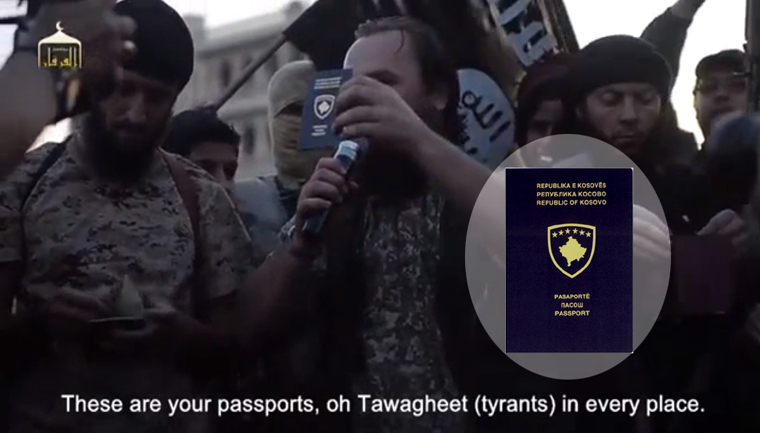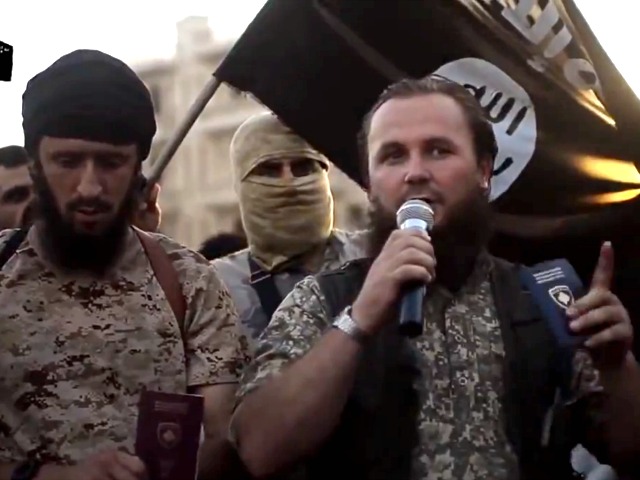
Views: 1767

For all the attention paid to the emergence of homegrown Islamist terrorists in Belgium, France and other European countries, one of the continent’s biggest radicalization problems is taking place on its fringes.
Kosovo, the tiny Muslim-majority Balkan nation of just 1.8 million, has produced more foreign fighters per capita than any other Western nation since ISIS declared its now-defunct caliphate in 2014. Some 413 Kosovo citizens, including women and children, have joined that group and other Islamist extremist factions since the war in Syria began in 2012.
 As it attempts to join the European Union, Kosovo has been under pressure to stamp out its radicalization problem — and authorities say they have succeeded. Since 2013, Kosovar police say they have indicted more than 120 terrorism suspects and arrested many more, including well-known conservative imams suspected of recruiting people to fight abroad.
As it attempts to join the European Union, Kosovo has been under pressure to stamp out its radicalization problem — and authorities say they have succeeded. Since 2013, Kosovar police say they have indicted more than 120 terrorism suspects and arrested many more, including well-known conservative imams suspected of recruiting people to fight abroad.
“Now we don’t see terrorism as a threat,” said Kujtim Bytyqi, one of the government’s senior security policy analysts and the head of Kosovo’s strategy to counter violent extremism. “There is total silence. All imams, even if they want to say something, are afraid of the government.”
But many of those suspected terrorists, convicted under an older counterterrorism law in which prison sentences averaged between three and five years, are now being freed. And some say attempts to rehabilitate them have come up short.
“We are growing stronger and getting smarter,” said Fitim Lladrovci, 28, a former ISIS fighter and inmate, referring to extremists. “Terrorists will not be reintegrated, and there may be attacks here.”
Anne Speckhard, who directs the International Center for the Study of Violent Extremism, said that Lladrovci’s contempt for rehabilitation and strengthened radical beliefs probably are emblematic of “some other returning militant jihadis well beyond Kosovo.” The trend, she said, “bodes ill for all of us.”
It’s a potentially ominous development for deradicalization efforts across the continent. “We have to provide a deradicalization model for the whole of Europe,” said Garentina Kraja, a senior external researcher for the Kosovo Center for Security Studies. “We’re a Muslim-majority society but we’re secular Europeans. So it feels like if there’s an example to be found somewhere, this is where we can provide a response.”
Kosovo may also be an entry point into the European Union to launch attacks, said Daniel Koehler, the director of the German Institute on Radicalization and De-radicalization Studies. In early June, Kosovo authorities arrested a couple suspected of planning attacks on NATO troops in Kosovo as well as on public places in France and Belgium.
Since April, the US Justice Department has helped implement rehabilitation programs in Kosovo’s prisons for suspects facing terrorism charges. Before then, however, the country had no comprehensive program for rehabilitating returned fighters, according to the 2018 Kosovo European Commission report.
“Most European countries have much more stable programs in place. In Germany, the UK and France, there is a long history of social welfare and prison infrastructure much stronger than in Kosovo,” Koehler said. “Kosovo is still recovering from its 1998-99 war against Serbia, and suffers corruption in the public sector and problems with rule of law.”
The new US-run program sends government psychologists, sociologists, social workers and moderate imams from the Islamic Community of Kosovo to work with inmates jailed on terrorism charges.

Originally published in August 2018
Source: Washington Post
Origins of images: Facebook, Twitter, Wikimedia, Wikipedia, Flickr, Google, Imageinjection & Pinterest.
Read our Disclaimer/Legal Statement!
Donate to Support Us
We would like to ask you to consider a small donation to help our team keep working. We accept no advertising and rely only on you, our readers, to keep us digging the truth on history, global politics and international relations.
[wpedon id=”4696″ align=”left”]
FOLLOW US ON OUR SOCIAL PLATFORMS








